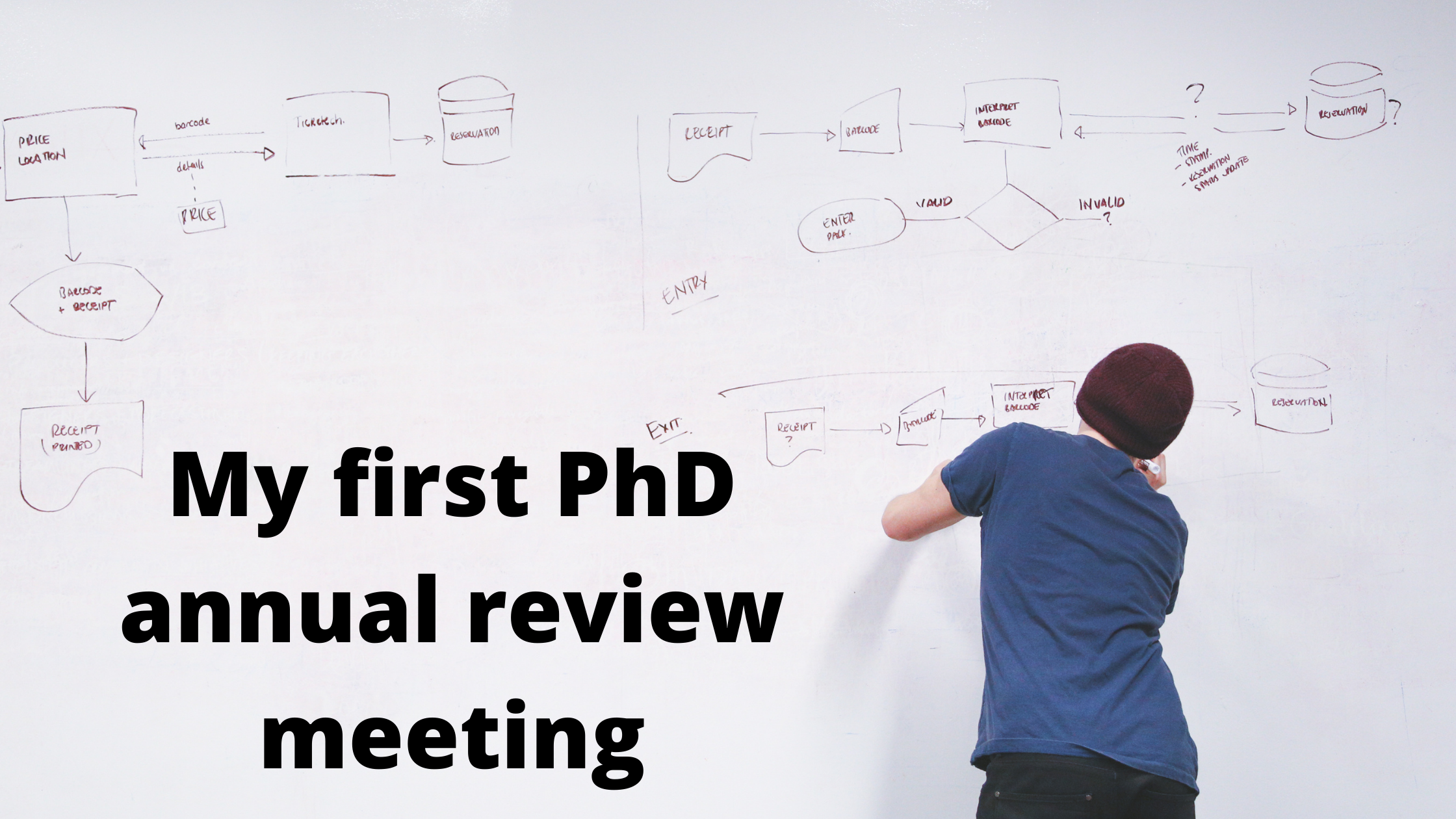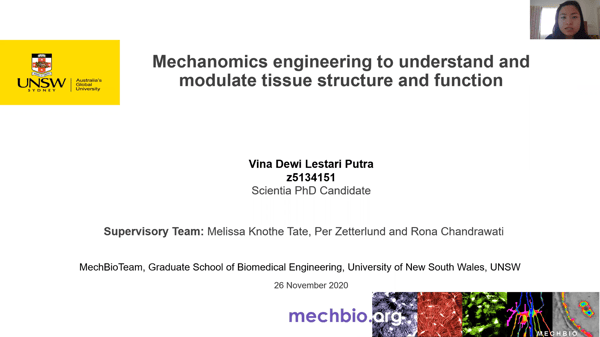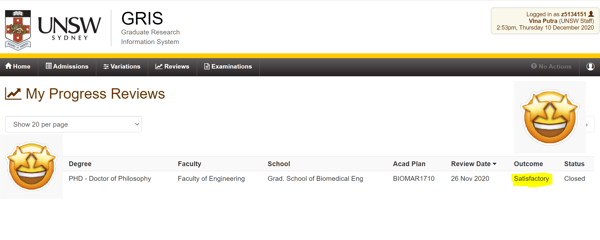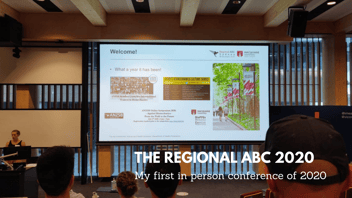
"The week has been chockers!", let me just quote what my supervisor said today, as the last week of November finally came to an end and we embraced the many nerve-racking moments that we went through in the past month and year, as we prepare to wind down for end of year.
From thesis students completion, final exam and finalizing marks for a class, the end of the year has been all about assessment. The most important moment for PhD students who begin their enrolment in the beginning of the year, is the annual progress review (APR) that usually takes place in the end of November. I am one of those PhD students, so the most important thing about this week was I have successfully gained the confirmation!
Yes, the confirmation is the term given to the first year PhD students who have successfully gone through the first 9 months of candidature, including completion of all the mandatory writings and trainings, and these are assessed in the review meeting. The goal of this review meeting is to discuss about candidates' progress and research plans and also serves as the opportunity for candidates and supervisors to raise any issues that might be impacting their research. Before attending APR, students are also required to attend workshops to be informed about what are expected from a candidate in order to receive a satisfactory outcome.
In my university (UNSW), candidates ideally has 1 APR meeting every year for 3-4 years of their candidature. The third one is usually the final meeting that determines timely completion and thesis submission according to the projected date. The outcome of each APR meeting will be decided by the panel whether the student achieved satisfactory, marginal or unsatisfactory progress. An unsatisfactory outcome means that the next review will be held within 3 or 6 months instead of within a year to make sure that the student get all the support and resources they need to complete their thesis.
The APR meeting is organized by the school's postgraduate coordinator (this is what is like in biomedical Engineering, UNSW, Sydney). For each candidate, a panel are assigned which consist of 3 academic staffs that may hold different position (professors or associate professor or lecturer) or have different research field/background. One month before the APR, the school sends a calendar invite and information about the meeting, and forms that the candidate and panel require to complete. In my university, a first year PhD student is required to also complete and submit a bunch of documents to be assessed by the panel include:
- Literature review (average is of 30-50 pages)
- Research proposal (containing a shorter literature review as background, then justification of research, aims, methods, and plans for the next 4 years)
- Milestones (Year 1 milestones and activities done to achieve them, and milestones for Year 2. Average of 4 key milestones is usually enough as it is better to not overestimate your available time and resources)
- Proof documents (e.g. email or screen shots) of completion of mandatory workshops and courses such as research integrity, research data management, data storage, student welcome and orientation
- Proof of completion of mandatory coursework such as writing courses, or research essentials
So, when all the documents are gathered a month prior to the schedule APR meeting, the student must complete a review form through the GRIS (Graduate Research Information System) platform. GRIS is where candidates information and progresses are managed. The forms that candidates need to complete ask about students research aim, achievement, weekly work hours, meeting and support from supervisor, and any issues that need to be resolved. The forms then get forwarded to the supervisor where they fill out similar information about the candidate. The whole form is completed by the panel on the day of APR with the outcome achieved by the candidate.
So, the way first APR meeting works in my school (Biomedical Engineering) follows this format:
- 5 minutes welcome and introduction - where the chair introduces everyone in the panel and supervisory team
- 15 minutes presentation by the candidate - this is the opportunity for the candidate to really report about research progress, future plans and explaining mostly results achieved. For a first year candidate, it is important to have a strong, SMART (Specific, Measurable, Attainable, Relevant, and Time-based) milestones, that become the key performance indicator to be assessed in the following year. Important TIP: This is the most important aspect being assessed a a first year candidate, make sure that you are clear with your aims!
- 5-10 minutes discussion about research - this is where the panel asks about research background, data and the statistics, some science and justification for experiments. In this part, the candidate really wants to show in depth understanding about the research, that should reflect the wealth of knowledge one writes in their literature review.
- 5 - 10 minutes discussion between panel and the candidate alone - this is the opportunity to raise issues or ask for help outside the supervisory team
- 5 - 10 minutes discussion between panel and the supervisors alone -this is the opportunity for supervisor to report about the candidate

Since COVID-19 has forced all the review meetings to happen virtually (video conference), I had the privilege to attend my APR meeting at home and with a side note for presentation shown in my second monitor 😅. The meeting went very smoothly and the only hurdle was panel have to manage people leaving and joining back to the call during the individual discussion. And I soon got notified of my satisfactory outcome and the panel report!

Anyway, what is the progress review meeting like in your university or school or faculty? And how are your experience in going through this process? I am very curious to hear about your experience in going through PhD review meeting and the differences. Share in the comment section below!





